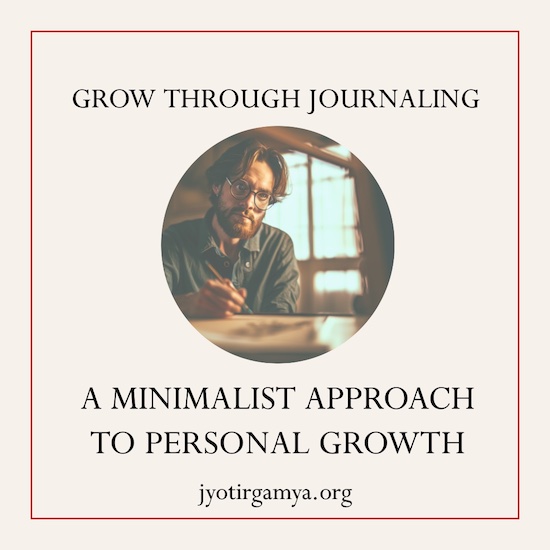How to Use Journaling for Personal Growth
Story: Cheating to Excel in an Ethics Exam
In the heart of the dense forest near the village of Bullsville stood Forest University, a beacon of knowledge for the animal inhabitants. Professor David Owl was revered not only for his teaching but also for his empathetic understanding of his students' struggles.

Among the students was Samantha the Fox, known throughout Bullsville for her clever manipulations. She always searched for ways to gain an advantage through deception or dishonesty.
Raised in a competitive environment, Samantha had learned early on that success often required bending the truth and using others to her advantage. This behavior had roots in her difficult childhood, where survival required clever maneuvering.
Initially, Samantha excelled in the class. She managed to deceive Professor David into believing she was a dedicated student. However, as the class continued, Samantha began to struggle. The subject matter proved more challenging than she had anticipated, and she found herself falling behind.
In need of assistance, Samantha visited Professor David’s office and admitted her difficulties with the material. She asked if he would consider tutoring her.
Although initially hesitant, Professor David eventually agreed. He recognized Samantha’s potential and wanted to support her in achieving success.
During their tutoring sessions, Samantha skillfully steered the conversations toward topics that would likely appear on the exam. Her charm and manipulation tactics were used in extracting critical information from David, all in the pursuit of securing her success.
One day, however, David introduced journaling as a tool for self-reflection and personal growth.
“In the realm of ethics,” he explained, “journaling serves as a means to confront our biases and acknowledge our shortcomings. It’s a pathway to becoming a better individual.”
Intrigued by this notion, Samantha began to journal, initially to enhance her manipulation skills.
Putting her thoughts on paper forced her to confront uncomfortable truths about herself. Her childhood memories, guilt, and shame resurfaced in her writing.

As Samantha journeyed through this self-discovery, she realized that her manipulative behaviors were not simply about gaining an advantage; they were a defense mechanism against feeling vulnerable or inadequate.
The journaling process revealed her fears and insecurities, helping her understand that her path reflected the pain she had carried from her past.
Through this journaling process, Samantha realized that her manipulative behaviors were a means of avoiding her weaknesses. She recognized the need for change and growth to become a more upright and genuine individual.
When the day of the exam arrived, Samantha found herself torn between her old ways and her newfound understanding of herself. She hesitated in a moment of internal struggle, her eyes fixed on the chits she had prepared.
As per her habit, she begins to cheat on the exam. But as she glanced at her dishonest answers, a wave of self-disgust washed over her. She realized she was repeating the pattern she had been striving to escape. Meanwhile, Prof. David had discovered her deceitful act from a corner of the exam hall.

In a heart-pounding decision, Samantha grabbed another sheet of paper and wrote her answers truthfully. As she did so, she acknowledged her past mistakes and the desire to change. The tension in the room was palpable as she handed her papers, not knowing how Professor David would react.
She was intrigued – would Professor David praise her for the honesty she had finally embraced, or would he chastise her for her initial attempt to cheat?
When David returned the graded exams, Samantha’s heart raced as she saw her score. It wasn’t perfect, but it reflected her effort and newfound integrity.
In a quiet yet powerful moment, Professor David commended Samantha for her bravery. He acknowledged her journey toward self-discovery and her difficult decision during the exam. With his guidance, Samantha transformed from a manipulative fox to an ethical fox, learning to confront her past and embrace a more authentic path.

Samantha’s transformation became a source of inspiration throughout Bullsville. Her story served as a reminder that it’s never too late to change one’s ways. Despite past mistakes, individuals can opt for a different path in the present. Through practices like journaling and self-reflection, people can learn from their errors and strive for personal growth.
The tale of Samantha’s metamorphosis spread far and wide, motivating others to prioritize honesty and integrity. Her narrative demonstrated that even the craftiest individuals can find redemption through ethical choices, self-examination, and the willingness to change.
Introduction
Finding a sanctuary for our thoughts and emotions is crucial in a world that moves relentlessly.
Welcome to journaling, a practice that transcends mere writing and delves into the depths of our inner worlds.
In the following paragraphs, we will dissect these viewpoints and weave a tapestry of insights illuminating the transformative potential of journaling. As we delve into the myriad aspects of this practice, one central truth becomes clear: journaling is not merely about putting pen to paper; it’s a transformative journey toward self-discovery and mental well-being.

Expert Advice
“I love journaling; it is a handy way of reflecting on thoughts, feelings, behaviors, and sensations.
Approach journaling with as little or as much as you like to begin with, using prompts if necessary, for example :
1. One thing I loved doing today,
2. One thing that made me smile,
3. A strong feeling I had today, etc.
4. Journaling is a lovely daily routine."
I am a firm believer in journaling. It needs to be a daily practice. It assists an individual process and metabolizes the emotions that need to be processed. Journalling is also a way to write down your triggers, harmful scripts, and beliefs, get them out of your head, and acknowledge them but from a removed place. Externalised place.
“I think journaling is quite an individual process, and therefore there are no “one-size-fits-all.” For me, that’s perhaps the first aspect of it to consider.
The process of journaling should ideally align with you. This is perhaps a bit double-edged in that just because you haven’t done something new before doesn’t mean it does not align with you. It’s the idea of stretching various muscles (in this case, perhaps the one of mentalization and writing down thoughts, ideas, and feelings). If these muscles are not stretched, you may not find comfort in the activity or maybe less keen on even attempting it.
-
Firstly, one needs to know how they feel about journaling and why they feel that way. Having said that, however, if you attempt it, perhaps on numerous occasions, and you have insight into how you prefer working through various life challenges, knowing that writing is not something you enjoy. The journaling process may cause further frustration and irritation, and it may not be an activity you would end up sustaining.
-
The second aspect would be related to how you perceive the activity. If you are perturbed by the thought of engaging in the activity, try to understand what is causing distress or discomfort.
-
The third aspect is related to how you journal. So, just because I am not comfortable or able to physically write anything down, it doesn’t mean this is the only journaling method. One can perhaps rely on technology such as audio equipment to record and plot down thoughts without using pen or paper.
-
The fourth aspect would be related to your purpose and meaning behind the journaling. Suppose you sincerely believe that this activity is going to be of some benefit to you, even if it is initially foreign or uncomfortable. In that case, you still hold some belief that this is going to be helpful to you. Whether you believe it will be a frustration or have a substantial positive impact on your life, you will be correct.
-
Once you have decided that this is something you are willing to try and put into practice, then it may be helpful to create mental space and time for the activity. Time that you know there will be little to no distraction.
-
Most activities we include in our lives need consistency and dedication to experience a positive and lasting effect, so the sixth point would be to do just that. Keep it consistent and dedicate time to this.
-
My seventh and last step is to allow the process to unfold organically. What I mean by this is that you shouldn’t have to think too hard or allow feelings of frustration to filter into your journaling process. Do not be rigid about it. Always be kind to yourself first and allow the process to unfold naturally. Enjoy it and create a space where you look forward to doing it.”
“Journaling is an excellent way for people to put pen to paper. It is a great way to visualize our thought processes.”
Journaling is an incredibly effective way to clarify our thoughts and feelings. It can be even more efficacious if one writes on specific or general prompts about events or beliefs occurring in one’s mind and life. It can be a great tool to foster a deeper understanding of oneself.
For instance, you can journal about your values by asking yourself, “What is important to me in life and why?” Research has shown that practicing gratitude can improve mood and decrease symptoms of depression, so writing a list of everything you’re grateful for is always a good idea.
You can also write about fears, “What do I fear most and why? What does that reveal about myself?” You can take any situation, thought, or feeling, ask yourself a question, and write it out.
This method will allow you to dive deeply into your innermost thoughts and feelings and provide sound clarity regarding moving forward in times of difficulty or uncertainty.
Conclusion
As we reflect on the transformative potential of journaling, let us embrace its flexibility, nurture our belief in its benefits, and dedicate time to this practice. With an open heart and a willingness to unfold organically, journaling can become a cherished daily ritual, guiding us toward greater self-awareness and resilience. Take the pen, release your thoughts, and embark on a journey of self-discovery through journaling.
So, why wait? Start your journaling journey today and unlock the boundless possibilities it holds.
Remember, with each word you write, you take a step closer to better understanding yourself and your world.
Further reading on Journaling
Unlocking Self-Reflection and Expression: The Transformative Power of Journaling
How to Write your Daily Journal?
If you think someone would benefit from the article, please do share it with them.
Want to stay connected? Here’s our twitter.